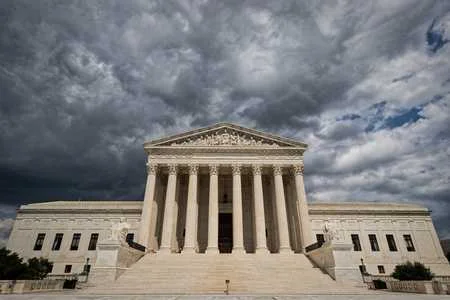Employers win big in Supreme Court case involving arbitration

When involved in an employment dispute, employers prefer arbitration over traditional litigation for a number of reasons, including that it costs less than going to trial. For instance, trials take longer so are more expensive. In addition, jurors are often sympathetic to workers, so workers tend to win more money through lawsuits than in arbitration. Employers particularly try to avoid class action lawsuits involving numerous employees, which can cost even more money than resolving disputes with individual employees.
But what happens if a group of employees seeks to resolve their complaints through group arbitration, rather than individually? This was the issue in a recent case before the U.S. Supreme Court.
Arbitration is an individual process
By a vote of five to four, the high court in Lamps Plus Inc. v. Valera overturned a 9th Circuit decision and ruled that arbitration is an individual process unless the arbitration agreement between employer and employee specifically allows for group arbitration. Chief Justice John Roberts wrote for the majority, claiming that class-wide arbitration “undermines the most important benefits” of arbitration. In plain terms, the majority of the justices found that the whole point of arbitration is to lower the cost and length of disputes for businesses, which isn’t accomplished as well through group arbitration.
Less leverage for employees
That is well and good for employers – but this decision puts employees at a disadvantage when trying to resolve business-wide complaints involving discrimination, wage and hour violations, and other claims. Employees who have signed a contract forcing them into individual arbitrations are particularly at a disadvantage.
The details of the case illustrate the problem for employees
The case arose when Lamps Plus staff member Frank Valera found himself the victim of a hacker who stole his personal information. The theft took place while he was working, and resulted in the filing of a fake tax return. He was not the only victim, as his coworkers also had sensitive data stolen by the hacker.
Valera filed a class action lawsuit against his employer for negligence, breach of contract and invasion of privacy. The case was then sent to collective arbitration of the claims, but attorneys for Lamps Plus argued that each employee had to bring an individual arbitration, which would be burdensome for the employees.
The 9th U.S. Circuit Court of Appeals in San Francisco ruled in favor of the employees to proceed as a group, not individually. The Supreme Court subsequently overturned that decision.
Decision has critics
Critics of the decision see the ruling as straying from basic arbitration principles and curbing class action claims. For them, the verdict is a setback for employee rights.